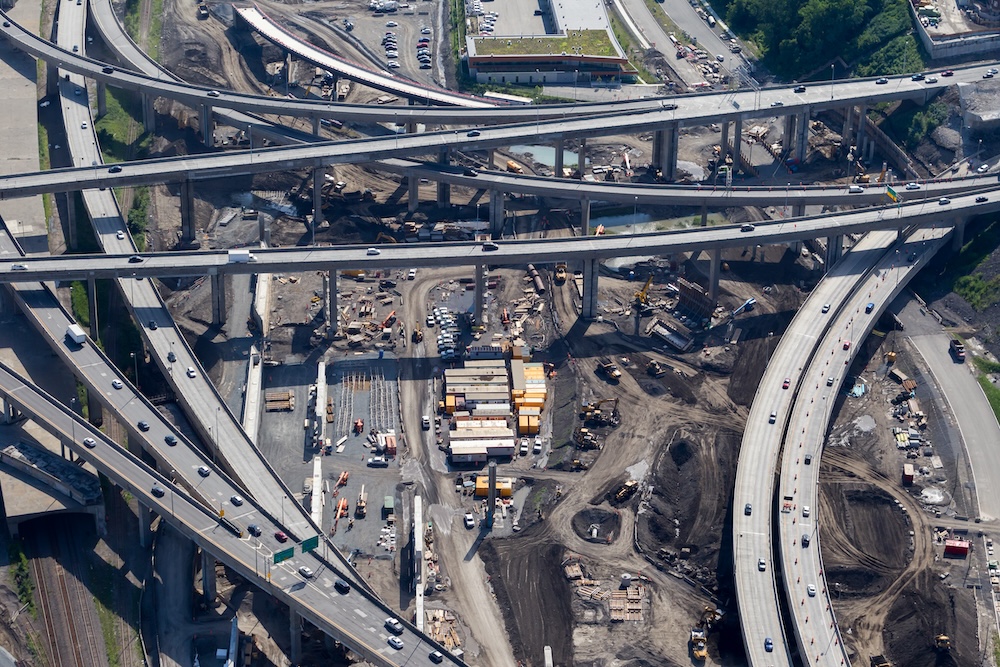Related Articles
— 5 min read
Key Differences Between Contractors & Subcontractors


Last Updated Sep 10, 2025

Khaled Kalawi
Principal Strategic Product Consultant
Khaled Kalawi is a Principal Strategic Product Consultant at Procore. With extensive experience in construction and engineering, Khaled has held key project management roles at organizations such as Southland Holdings and STRABAG. During his tenure at STRABAG, he held multiple positions including Lead Estimator, Tunnel & Site Engineer, and Tunnel Engineer, demonstrating his expertise in project estimation, tunneling, and site management. He has successfully overseen multimillion-dollar projects, optimized excavation procedures, and implemented innovative solutions that increased efficiency and reduced costs. His early career includes a role as Site Inspector at Khatib & Alami CEC, where he ensured compliance and quality for high-rise residential projects in Beirut. Khaled holds both a bachelor's and master's degree in Civil Engineering from Queen's University. He lives in Toronto.

Hildy Medina
Jobsite Editor-in-Chief
Hildy Medina is the Editor-in-Chief of Jobsite. In her former life, Hildy was a journalist writing for various publications, including Forbes, The San Diego-Union Tribune, and The Santa Barbara News-Press.
Last Updated Sep 10, 2025

Few owners and developers employ in-house construction teams. Instead, nearly all construction projects are outsourced to professionals, who work for the owner under a contract.
In fact, most construction projects are made up of a number of smaller, separate contracts, each requiring trade contractors with varying expertise to complete. Almost all construction work is performed by independent contractors.
But unlike many other industries, the lines between different types of independent contractors can be less clear. In this article, we'll explore the key differences between the types of independent contractors in construction.
Table of contents
Independent Contractors in Construction
The term “independent contractor” applies to anyone hired to perform work or services under contract (i.e. not directly employed by the hiring party), while "subcontractor" refers to any person or company who doesn't have a direct contract with the owner.
"Independent contractor" is used in most industries to differentiate between an employee and an outside entity, and has legal implications on tax and insurance liability. In Canada, an acceptable definition for an "independent contractor" goes as “workers who provide paid services to another party.” The Canada Revenue Agency (CRA) applies multiple threshold tests to determine whether a person is an employee or an independent contractor.
A construction contract typically defines the scope of work, specifications, and overall schedule for the project. But the owner typically doesn't control the specific days or hours that the contractor works, or the tools they use — the contractor is in control of how the project is delivered. As a result, as per the Canadian tax guidelines, most construction contractors are considered "independent contractors."
Other types of construction companies, like architects and engineering firms, also operate as independent contractors — but the term "contractor" is generally used in construction to refer to the companies that manage or perform actual construction work. Because nearly all projects are built by independent contractors, rather than direct employees of the owner, in construction "independent contractors" are simply called "contractors."
Contractors are typically hired directly by a company or individual for a project. They usually have their own business and are self-employed. Independent contractors are charged with tasks like sourcing raw materials and estimating project costs, including labour, agreeing on project deadlines with the client, hiring necessary subcontractors and other tradespeople, and resolving any potential issues that could delay the project.
Subcontractors in Construction
Few construction projects are delivered entirely by a single contractor or their employees. Because of the highly complex nature of building work, the prime or general contractor typically outsources much of their scope of work to subcontractors who specialize in a particular trade.
Just like general contractors, subcontractors are independent contractors — they are not employees of the owner. They have the right to control their own operations — in other words, how they get the work done.
Subcontractors most often specialize in a specific aspect of a project. Rather than being directly hired by the client, they’re called in by contractors to perform certain tasks, such as roofing and siding, electric work, plumbing, or tiling.
Generally, the term "contractor" is used to refer to any company doing actual construction work, including general contractors and subcontractors. But for clarity, most construction contracts use Contractor (with a capital "C") to refer to the party with a direct relationship with the owner, and Subcontractor to define the companies hired by the Contractor (or by any of the Contractor's Subcontractors).
Because subcontractors are hired by another contractor, the owner typically has little control over their involvement in the project. Instead, the owner chooses a prime or general contractor based on their experience delivering a particular type of project — trusting them to bring on qualified, experienced subcontractors to get the job done.
Independent Contractor Responsibilities
Contractors and subcontractors work similarly in construction, both playing a role in a project’s completion using their own tools and equipment. Neither a Contractor nor a Subcontractor are employees of the companies they contract with, so their own respective insurance covers them on the job.
As independent contractors, each company is responsible for its own tax withholding, workers' compensation insurance (e.g., WorkSafeBC, WSIB Ontario), payroll, and other business activities. Most provinces require both subcontractors and general contractors to have their own insurance and contractor licensing in place before tendering on jobs.
Independent contractors are in essence hired to take charge of a construction project, ensuring the necessary materials and subcontractors are in place to ensure its timely completion. Part of the trust involved in hiring an independent contractor is knowing they will only subcontract out to skilled and dependable specialists, which is usually agreed upon in advance in contract language before work begins. Independent contractors are usually required to be bonded before the start of a project, while subcontractors are not held to the same requirement.
Project owners contract directly with independent contractors, who in turn, pay any subcontractors they hire to complete specific project tasks like HVAC work, hanging drywall, or any needed plumbing or electrical work. This can occasionally cause problems ensuring subcontractors are paid on time, as how quickly a sub is paid is directly dependent on how fast the owner pays the independent contractor. Sometimes on a particularly complex project, subcontractors will contract with subcontractors of their own for certain tasks, which can present some problems for owners around contract requirements, labour rules or regulations, scheduling, or quality and safety concerns.
Since independent contractors are the ones paid directly by the owner, it’s the owner’s responsibility to ensure requirements governing sub-subcontractors are clearly laid out in the contract signed at the project’s outset.
Categories:
Written by

Khaled Kalawi
Principal Strategic Product Consultant | Procore
Khaled Kalawi is a Principal Strategic Product Consultant at Procore. With extensive experience in construction and engineering, Khaled has held key project management roles at organizations such as Southland Holdings and STRABAG. During his tenure at STRABAG, he held multiple positions including Lead Estimator, Tunnel & Site Engineer, and Tunnel Engineer, demonstrating his expertise in project estimation, tunneling, and site management. He has successfully overseen multimillion-dollar projects, optimized excavation procedures, and implemented innovative solutions that increased efficiency and reduced costs. His early career includes a role as Site Inspector at Khatib & Alami CEC, where he ensured compliance and quality for high-rise residential projects in Beirut. Khaled holds both a bachelor's and master's degree in Civil Engineering from Queen's University. He lives in Toronto.
View profile
Hildy Medina
Jobsite Editor-in-Chief | Procore
Hildy Medina is the Editor-in-Chief of Jobsite. In her former life, Hildy was a journalist writing for various publications, including Forbes, The San Diego-Union Tribune, and The Santa Barbara News-Press.
View profileExplore more helpful resources

2026 Forecast: 5 Construction Trends That Will Lead to True Tech Transformation
I was walking a job site recently with an old friend—a superintendent I’ve known for years. He pointed at a table cluttered with iPads and phones and gave me a...

Agentic AI as a Capacity Multiplier: Why Construction Leaders Are Hiring “Digital Employees”
It’s not every day you see Procore, CMiC, and EllisDon sharing the same stage. But frankly, the topic demanded it. In a recent webinar hosted by On-Site Magazine, we joined...

The 5 Key Types of Construction Contracts
There are five common types of construction contracts: lump sum (or fixed price), time and materials (T&M), unit price, guaranteed maximum price (GMP), and cost-plus. Each of these contract types...

Time and Materials (T&M) Contracts in Construction: Guide for Contractors & Project Owners
A time and materials (T&M) contract is a construction agreement where the project owner pays the contractor for all material and labour costs on a project as well as contractor...